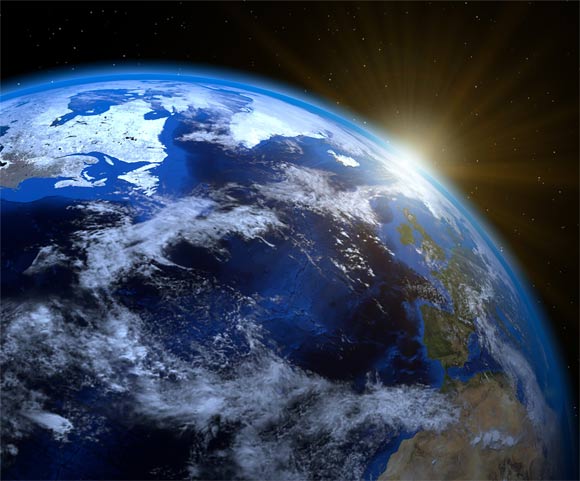A team of planetary scientists at the Australian National University found that our planet is made of the same elements as the Sun but has less of the volatile elements such as hydrogen, helium, oxygen and nitrogen.

Wang et al compared new protosolar elemental abundances with recent estimates of bulk Earth composition. Image credit: Orlando PIRO4D.
“The composition of a rocky planet is one of the most important missing pieces in our efforts to find out whether a planet is habitable or not,” said lead author Dr. Haiyang Wang, a researcher in the Planetary Science Institute and the Research School of Astronomy and Astrophysics at the Australian National University.
“Other rocky planets in the Universe are devolatized pieces of their host stars, just like Earth.”
Dr. Wang and colleagues made the best estimate of the composition of Earth and the Sun with the aim of creating a new tool to measure the elemental composition of other stars and rocky exoplanets that orbit them.
“Every star has some kind of planetary system in orbit around it,” said Australian National University’s Dr. Charley Lineweaver, co-author of the study.
“The majority of stars probably have rocky planets in or near the habitable zone.”
In the study, the scientists compared the composition of Earth rocks with meteorites and the Sun’s outer shell.
“This comparison yields a wealth of information about the way the Earth formed,” Australian National University’s Professor Trevor Ireland, co-author of the study.
“There is a remarkably linear volatility trend that can be used as a baseline to understand the relationships between meteorite, planet and stellar compositions.”
The findings will be published in the journal Icarus.
_____
Haiyang S. Wang et al. 2019. The Volatility Trend of Protosolar and Terrestrial Elemental Abundances. Icarus, in press; arXiv: 1810.12741







